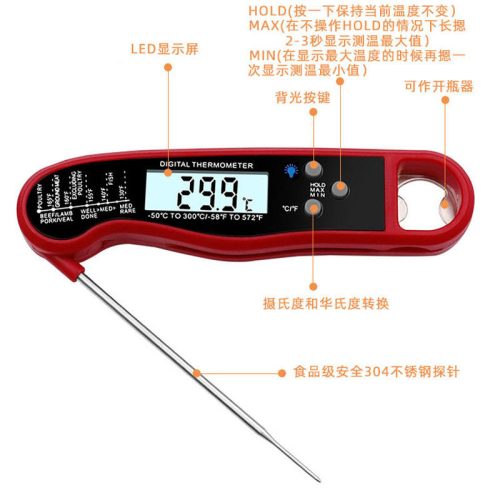Hygrometers play a significant role in health by helping to monitor and manage indoor humidity levels, which can have a direct impact on personal well-being. Here’s how hygrometers contribute to health:
- Respiratory Health: Proper humidity levels are crucial for respiratory health. Dry air can lead to irritated nasal passages, sore throat, and increased susceptibility to respiratory infections. On the other hand, excessive humidity can foster the growth of mold, dust mites, and bacteria, triggering allergies and asthma. Hygrometers aid in maintaining an optimal indoor humidity range (around 30-50%), reducing the risk of respiratory issues.
- Comfort and Sleep Quality: Balanced humidity levels contribute to overall comfort and quality of sleep. Dry air can cause discomfort, leading to disrupted sleep, dry skin, and nasal congestion. Monitoring humidity with a hygrometer helps ensure a comfortable environment conducive to restful sleep.
- Skin Health: Low humidity can result in dry and itchy skin, while high humidity can exacerbate conditions like eczema. Hygrometers help in maintaining suitable moisture levels to prevent skin dryness and irritation.
- Allergy and Asthma Management: Controlling indoor humidity levels is essential for individuals with allergies and asthma. High humidity can promote the growth of allergens like dust mites and mold, triggering allergic reactions and asthma attacks. Hygrometers aid in preventing such occurrences by maintaining humidity within recommended levels.
- Preventing the Spread of Illness: Proper humidity levels can help reduce the transmission of viruses and bacteria. Studies suggest that maintaining indoor humidity within a certain range can reduce the survival rate and transmission of some airborne viruses, potentially decreasing the spread of illnesses.
- Mental Health: Comfortable indoor environments, including appropriate humidity levels, can positively impact mental well-being. Dry air can contribute to feelings of fatigue and irritability, while overly humid conditions may feel uncomfortable and oppressive. Maintaining balanced humidity can contribute to a more pleasant and conducive atmosphere for mental wellness.
Hygrometers serve as essential tools for ensuring that indoor environments remain within a healthy humidity range. By monitoring and controlling humidity levels, individuals can create a more comfortable and health-supporting environment, reducing the risk of respiratory issues, skin problems, allergies, and promoting overall well-being.


